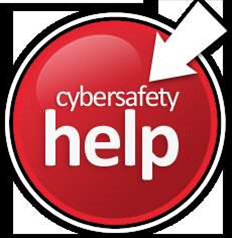The European Union has proposed far-reaching counter-terrorism measures — including internet filtering and virtual policing — that some fear would limit users' internet freedoms through voluntary but binding agreements with network providers.

Documents leaked (pdf) from the initiative, dubbed CleanIT, showed the union proposed measures obliging internet companies to include anti-terrorism conditions in their acceptable use policies, and to set up hotlines with law enforcement agencies to report such activities.
The project, billed as "reducing the impact of ... terrorist use of internet", sought to develop a framework of general principles and best practices with the private sector, using non-legislative guidelines or gentlemen's agreements.
The measures would be implemented within six months to two years after an organisation commited to the recommendations and best practices document.
Other actions required included:
- implementing a virtual reporting button in a web browser or operating system;
- social media patrolling;
- greater sharing of information between ISPs;
- automated terrorist activities detection systems;
- extensive logging;
- and content blocking/filtering, with subscribers forced to use their real names online.
Use of unusual and rare languages online would be banned if the CleanIT recommendations are adopted, as these can't readily be understood by law enforcement surveillance agents.
While CleanIT "does not aim to restrict internet freedom" according to the project FAQ, it did "have security concerns and wants to limit the use of the Internet for terrorist purposes".
"We realise that openness, privacy and security are the three sides of a triangle that should be balanced properly," CleanIT stated.
Legislative amendments in individual member countries were also sought by the CleanIT project, including an expansion to law enforcement investigative powers and extensive reviews of legal frameworks by governments.
Marked "not for publication" and shared only a on a "need-to-know basis", the document was unfinished, with points such as the structure of an internet filtering system left open for discussion.
Criticisms
Civil rights lobby group European Digital Rights (EDRI), which published the leaked document, said they showed "plans for large-scale, undemocratic surveillance of all communications".
It claimed CleanIT would work on "binding engagements" from internet service providers for surveillance, content blocking and filtering at local network level.
"[CleanIT] wants a network of trusted online informants and, contrary to everything they have ever said, they also want new, stricter legislation from Member States," the civil rights group said.
The Electronic Fronter Foundation also criticised the project as eroding civil liberties and privatising law enforcement.
Computerworld UK called some of the CleanIT project's proposals so absurd they should never have been considered for an instant by any reasonable, intelligent group of people.
"They are so far from the norms of European society that they should have been laughed out of the room the instant anyone was foolish enough to suggest them," columnist Glyn Moody said.
The initiative appeared to be led by the Netherlands' National Coordinator for Counterterrorism and Security, with support from Germany, UK, Belgium, Spain, Denmark, Hungary, Austria and Romania.
Though the project sought to involve private sector companies, no such organisations had partnered with CleanIT at the time of the documents leaking.


_(33).jpg&h=140&w=231&c=1&s=0)
_(28).jpg&h=140&w=231&c=1&s=0)







 iTnews Benchmark Awards 2026
iTnews Benchmark Awards 2026
 iTnews Executive Retreat - Security Leaders Edition
iTnews Executive Retreat - Security Leaders Edition
 iTnews Cloud Covered Breakfast Summit
iTnews Cloud Covered Breakfast Summit
 The 2026 iAwards
The 2026 iAwards












_(1).jpg&h=140&w=231&c=1&s=0)



